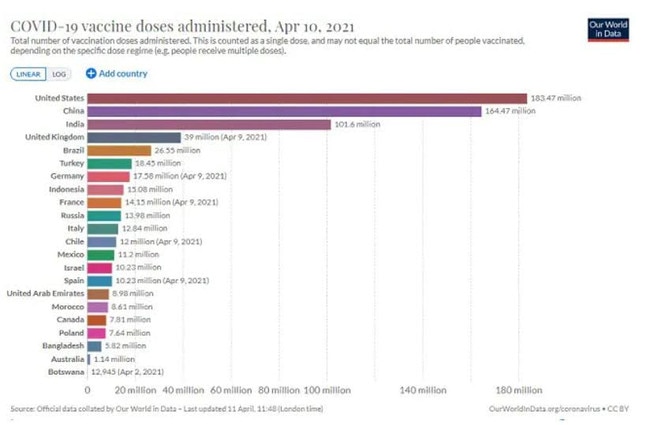Blood clot death linked to vaccine
The TGA has revealed the death of a 48-year-old NSW central coast woman was linked to the AstraZeneca vaccine.

The Therapeutic Goods Administration has revealed the death of a 48-year-old NSW central coast woman was linked to the AstraZeneca vaccine.
It is the third case in Australia of blood clotting linked to the vaccine.
In a statement released late on Friday night, the TGA said its Vaccine Safety Investigation Group had concluded that the woman had developed blood clots with a low platelet count, after receiving the vaccine on April 8.
The review found that her death was complicated by underlying medical conditions, including diabetes and other “atypical” conditions. “The case was consistent with causal association to immunisation although for this patient, anti-PF4 antibodies were absent,” the statement said. “Despite the atypical clinical features and the negative antibody test, in the absence of an alternative cause for the clinical syndrome, VSIG believed that a causative link to vaccination should be assumed at this time.”
The TGA said the woman was vaccinated prior to the federal government’s decision that the Pfizer vaccine was preferred for patients under 50. It also noted that the rates of blood clotting related to the vaccine were still very low. “(There) have been at least 885,000 doses of AstraZeneca COVID-19 vaccine administered in Australia to date; so three cases of TTS equates to a frequency of one in 295,000.”
Some test results from the review are still pending, and an autopsy will be conducted next week.
The announcement came after Australian health chiefs seized on new research showing the risk of severe blood clots from COVID-19 is about eight times greater than the risk associated with taking the AstraZeneca vaccine.
Chief Medical Officer Paul Kelly cited the new Oxford University study as he urged healthcare workers aged over 50 not to cancel vaccination appointments as state-run clinics reported rising rejection of AstraZeneca’s vaccine.
The Oxford University study showed the risk of severe blood clots in the brain from COVID-19 is about eight times greater than the risk associated with taking the Oxford-AstraZeneca vaccine.
The finding was calculated using a database of half a million COVID-19 cases in the US, from among whom 40 in a million people suffered blood clots in the brain two weeks after a coronavirus infection. Of those blood clot cases, about one in five were fatal.
Regulators in Britain believe that the AstraZeneca vaccine is linked to a four to five-in-a-million risk of similar clots.

Professor Kelly said older healthcare workers refusing to take the AstraZeneca shot were the group the government was most concerned about, with fewer cancellations being reported by GP surgeries by elderly patients.
“There has been some hesitancy,” Professor Kelly said. “There certainly has been some indication of that particularly in state-run clinics. In the state-run clinics they’re mostly looking at vaccinating the healthcare workers, many of whom would be over 50.
“What I would say to people is talk to your vaccine provider if you have concerns but please do not cancel your appointment, go and at least have that conversation and take the vaccine because that’s the way we are going to get on top of the COVID situation in Australia.”
Professor Kelly presented new statistics in an attempt to convince hesitant people, outlining the fact that for those over 50, the risk of COVID-19 outweighed any remote chance of developing unusual blood clots.
In an low-exposure-risk environment similar to the first wave of COVID-19 in Australia, there would be expected to be 0.9 ICU admissions among people aged 50-59 per 100,000 people, compared with 0.4 incidents per 100,000 of rare blood clots. For those aged 60-69, there would be 1.6 ICU admissions per 100,000 people compared with only 0.2 cases of unusual blood clots per 100,000 people. “The risks of severe COVID infection increases with age whereas the risk of the clots decreases with age,” Professor Kelly said. “We are in a very unusual situation here in Australia at the moment with no community transmission and very few cases, but this will not continue. That is why we have a vaccination program and the benefits of being vaccinated outweighs the risk of these rare events.”
John Geddes, from Oxford University, said that although the blood clots with low platelet counts appeared to be a rare side effect of vaccines, blood clots were much more commonly caused by the virus.



To join the conversation, please log in. Don't have an account? Register
Join the conversation, you are commenting as Logout